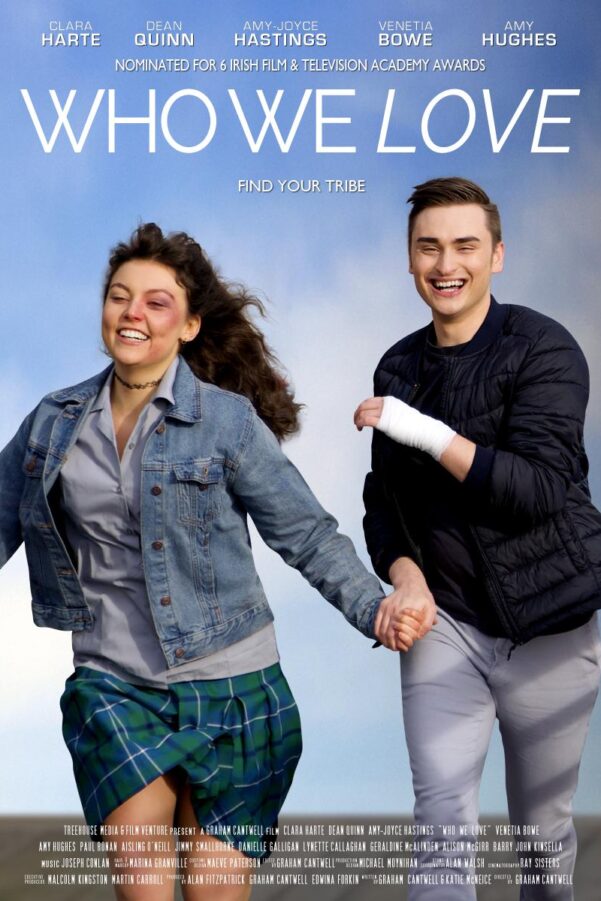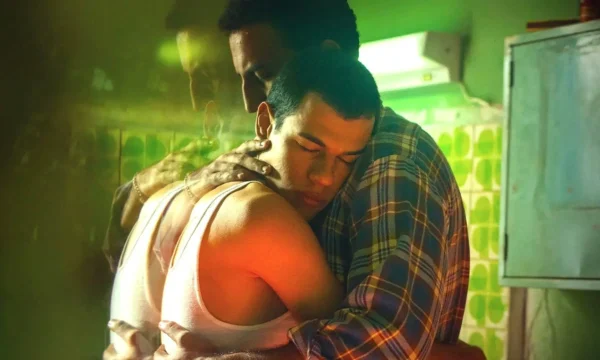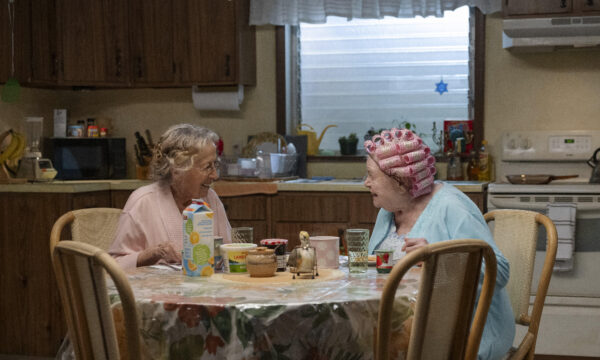Who We Love

Irish filmmaker Graham Cantwell’s Who We Love is a coming-of-age drama focusing on the importance of friendships and building strong and supportive relationships, especially for LGBTQ+ individuals discovering their sexuality and navigating their identity. Adapted from the filmmaker’s 2016 short film Lily, the feature touches on several loaded subjects: bullying, self-harm, age gaps relationships and discrimination. Lily, reprised by Clara Harte, a high school student just back from a trip to San Francisco, discovers an unexpected side to herself after a tryst with another girl during her time away. Prepping for the school year ahead, she finds herself crushing on Violet, a longtime friend and classmate. When her feelings begin to manifest into acts of physical intimacy, which Violet initially reciprocates, things spiral out of control when the girls’ camogie team catches them almost kissing in the bathroom. Things escalate into physical violence and Lily finds comfort in her openly gay best friend Simon, who shows her a whole new world in the hidden alleyways, night air and city lights of Dublin.
Who We Love is ambitious in its abundance of interesting characters and storylines, most of which are only mentioned in passing or shown briefly on screen. As Lily is the protagonist, her perspective is central to the picture. The colours are even receptive to Lily’s mood, with the vibrance and saturation of the visuals changing depending on how Lily feels at any given moment. Still, there are small glimpses into other people’s stories – their struggles, their home lives, how their relationships affect the decisions they make, and how they feel about certain events throughout the film. The most fascinating of these dynamics is Simon and his father. There’s a tough love aspect to their relationship in which his father struggles to accept Simon’s identity for fear of how the world might perceive and mistreat his son, and Simon tries to rationalise this disapproval of him with the love and protection he knows is there.
Violet is also another compelling character, played charmingly well by Venetia Bowe. There’s a duality in her that’s intriguing to watch unfold, a certain kind of repression and denial in her attraction to Lily and a desperation to hold onto some semblance of control, all of which manifests into a violent tendency and mean-spirited energy. She truly encapsulates the dissonance between charisma and being a good person. Another form of duality in the film is the different types of relationships between adults and teens; ones that highlight the stark contrast between manipulation and power imbalances, and genuine support and mentorship. The conversations about influences these adults can have on children, especially those coming-of-age and still confused over their identities and sexualities, are complex and not over-indulgent.
The feature, however, suffers from its breakneck pacing, which negates the impact of certain moments and leaves no time for the audience to digest the significance of specific scenes. Lily’s descent into self-harm in particular feels shoehorned because of how fast the series of events goes by. Who We Love falls easily into the traps of melodrama because of the constant presentation of trauma without fully exploring its depth, as if the film wants to cover so much of these weighty topics without bearing the consequences of doing so. The fast pacing is most evident in the latter half of the piece and in the approach to the ending. Because of the many characters and stories Canter and co-writer Katie McNiece tried to incorporate, there’s a feeling of desperation to wrap everything up in a neat bow at the very last second. The ending montages that try to explain away everyone’s fate sadly fall flat.
Who We Love has so many intriguing stories, themes and character arcs to unpack. Unfortunately, it does not have the runtime to do justice to all of them. What it does have is a fantastic soundtrack full of teen nostalgia, some excellent performances by the actors, and touches of fascinating concepts and dynamics that could have been great if given the space to breathe.
Mae Trumata
Who We Love is released digitally on demand on 6th January 2025.
Watch the trailer for Who We Love here:


























Facebook
Twitter
Instagram
YouTube
RSS